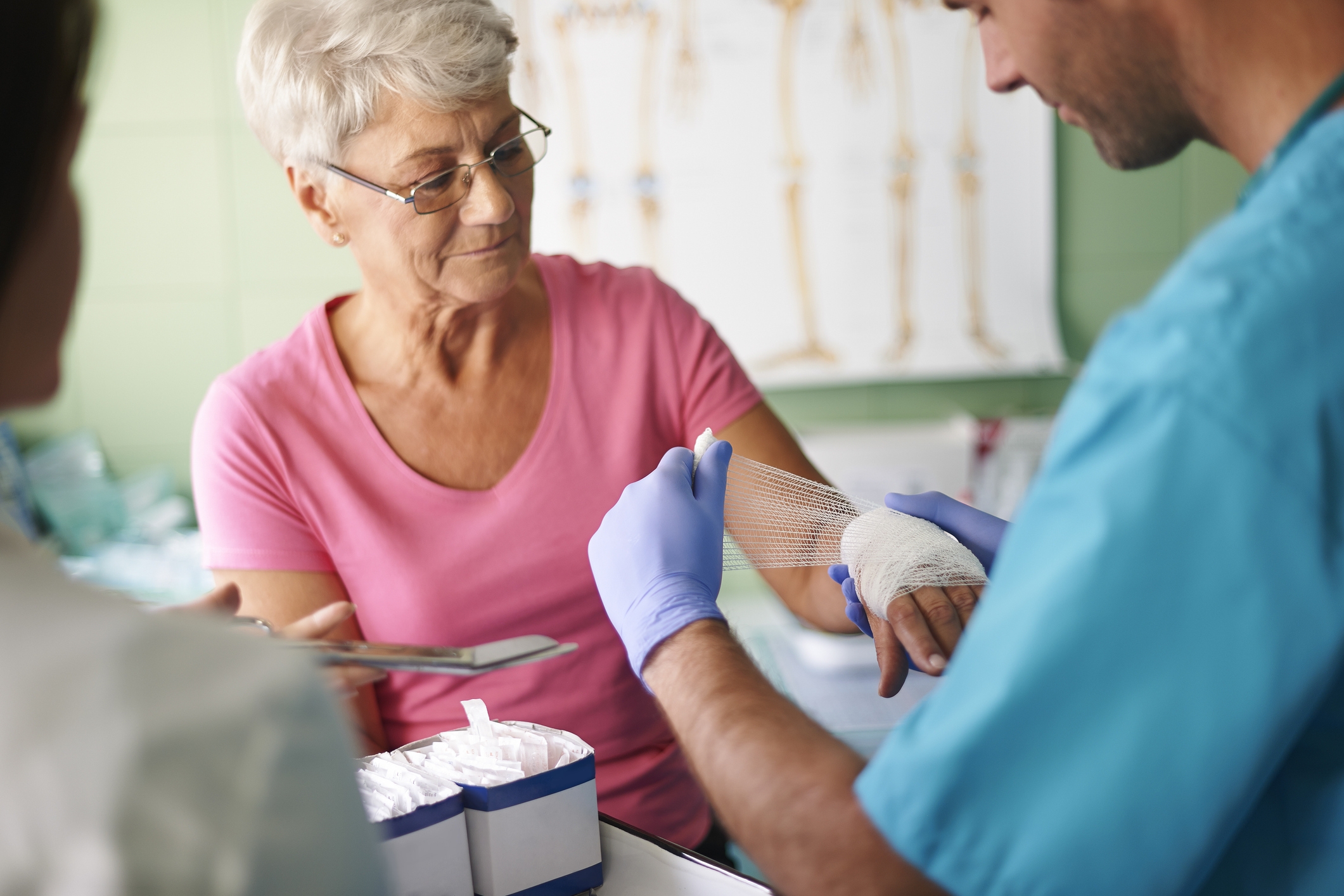
Why do wounds itch? How the body heals
Wounds are common in life, whether it be a small cut from a kitchen knife or a more serious injury from an accident. They can be painful and annoying to deal with, but wounds are a normal part of life and generally heal on their own with proper care and attention.
So, if you have a wound, don’t worry. Take good care of yourself and let your body work to heal the injury.
Some wounds, however, require medical care. Large or deep cuts may need stitches or sutures, while other injuries may get infected and require antibiotics. If you want a doctor to look at your wound, visit your neighborhood CityMD for an immediate evaluation and treatment.
And if your wound starts to itch, that’s normal too. Read on to learn more about what causes wounds, how the body heals them, why wounds may itch at times, and what you can do to prevent complications.
What are wounds?
Wounds are injuries to the skin or underlying tissues caused by various factors such as cuts, scrapes, burns, or punctures. They can range in severity from minor scratches to more severe injuries that require medical attention.
The skin is the body's first line of defense against harmful bacteria and viruses. When a wound compromises this protective layer, it can increase the risk of infection.
The healing process begins as soon as the wound occurs. The body sends specialized cells to the injury site to repair the damaged tissue. Blood vessels in the area get larger to bring more oxygen and nutrients to the cells, and new cells replace the damaged tissue.
Why do wounds itch?
Wounds can itch for several reasons, including the body's natural healing process, nerve irritation, or the release of histamines — chemicals released by the immune system that trigger allergic reactions. Here are some possible explanations.
The body’s healing process
The human body has an amazing ability to repair and regenerate damaged tissue. Even the most stubborn wounds can eventually heal with proper care and attention.
Itching is a natural part of the body's healing process. When the skin is injured, the body sends blood cells to the area to repair the damage. These cells release substances that cause inflammation and itchiness, a sign that the healing process is underway.
Histamine release
Histamines are chemicals released by the body's immune system in response to injury or infection. They help to increase blood flow and bring white blood cells to the area to fight infection. However, histamines can also cause itching and irritation.
Nerve irritation
When the skin is injured, the nerve fibers in the affected area can become irritated. Nerve irritation leads to sensations of pain, itching, or burning.
In short, itching is a common and often uncomfortable symptom of the healing process.
Wounds that itch are not usually a cause for concern. It may be a sign of infection if the itching is severe or accompanied by other symptoms, like redness, swelling, or pus. That's when you should seek immediate medical attention by visiting your neighborhood CityMD urgent care or by scheduling a virtual visit.
How do you stop a wound from itching?
When you have a wound that itches, it can be frustrating and distracting. You might be tempted to scratch it, but that can actually make the itching worse and increase your risk of infection. So, what can you do to stop a wound from itching?
Here are some friendly tips to help you soothe the itch.
- Keep wounds clean and dry. Cleaning and drying the wound is essential to prevent infection and promote healing. Use a gentle cleanser to wash the area and pat it dry with a clean towel.
- Apply a cold compress. Using a cold compress can help reduce inflammation and numb the area, which relieves itching. You can use a cold pack or wrap some ice in a towel and apply it to the wound for a few minutes at a time.
- Use a topical cream. Several over-the-counter creams and ointments can help to soothe itching, such as hydrocortisone cream, calamine lotion, or aloe vera gel. Just make sure to read the label and follow the instructions carefully.
- Try not to scratch. As tempting as it may be, scratching a wound can make the itching worse and delay healing. Try to distract yourself with other activities, such as reading, watching TV, or chatting with friends.
- Consult a healthcare provider. If your wound is particularly itchy or showing other signs of infection such as redness, swelling, or discharge. it's best to consult an urgent care provider. Walk right into your neighborhood CityMD urgent care to determine the underlying cause of the itch and get the appropriate treatment.
Remember, be patient when dealing with a wound. It may take some time to heal completely, but with proper care and attention, you can help to minimize itching and promote healing.
Is your wound not healing? Try wound care At CityMD
If you need wound treatment, your local CityMD urgent care is a great option.
CityMD’s compassionate and experienced healthcare providers are available every day of the week and can help assess your wound. They can also provide treatment and advice you on how to care for the wound at home.
With more than 160 locations throughout the tri-state area, you can easily find a CityMD urgent care center that's convenient for you. No appointment is necessary, you can simply walk in and get the care you need as soon as possible.
Remember, getting proper treatment for your wound is essential for preventing complications and ensuring the best possible outcome. If you need help, simply walk right into the CityMD location near you.

We’re ready to care for you.
Visit any CityMD urgent care location in your community today for an evaluation with one of our expert providers.